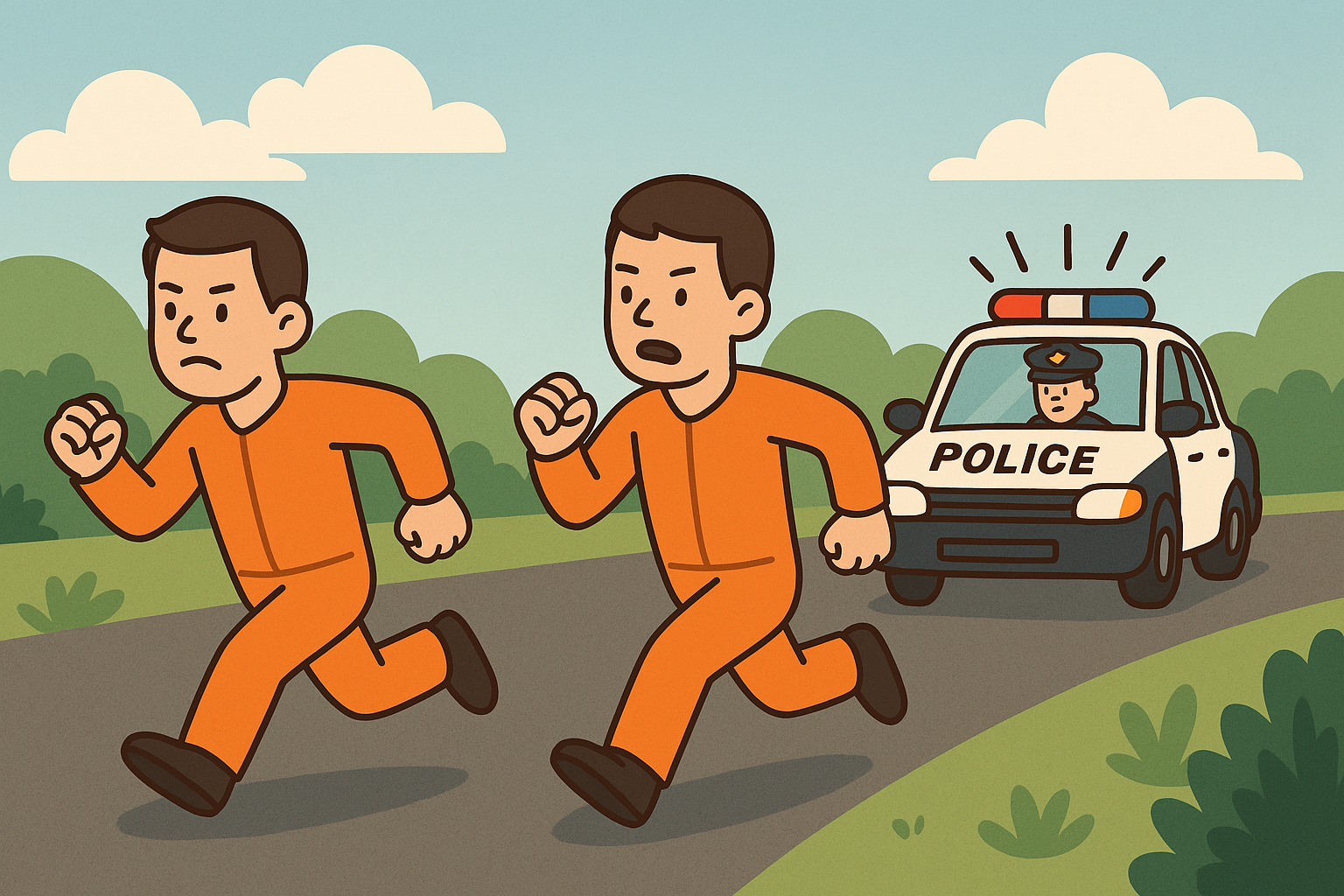
Introduction to the Study 📖
This project examines the dynamics of criminal cooperation, specifically through an economic lens using Game Theory. It uses the real-life criminal case known as “El Crim de la Guàrdia Urbana” to exemplify how strategic decisions evolve during police investigations. The study particularly focuses on a modified version of the Iterated Prisoner’s Dilemma (IPD), considering psychological, social, and legal factors that influence decision-making processes over time.
Methodology 🧩🔍
Initially, the classical Prisoner’s Dilemma is taken as a foundational model. However, recognizing that real-world situations rarely align perfectly with traditional PD scenarios, this analysis evolves to incorporate iterative gameplay. This adaptation more accurately models interactions, strategic exchanges, and evolving perceptions among involved parties. Three models are analysed and compared with real-life complexities:
Basic Prisoner’s Dilemma 🕹️
A simplified game matrix is used to represent potential prison sentences depending on the decisions made by both criminals. The scenario clearly illustrates classic PD outcomes where betrayal tends to dominate due to rational self-interest.
| Criminal 2 | |||
|---|---|---|---|
| Betray | Cooperate | ||
| Criminal 1 | Betray | -20, -25 | -3, -25 |
| Cooperate | -20, -3 | -5, -5 | |
Advanced Psychological Model 💡
A subsequent refined model introduces psychological aspects such as perceived injustice and emotional connections (“Love” and “Selflessness”) as cooperation-enhancing factors. The mathematical representation of these factors significantly influences the equilibrium points, showing that emotional and psychological considerations could promote cooperation.
u(Xia | b) = Ωi(−Ψi − Yiab) + Li(−Ψj − Yjba)
Where:
- u(Xia | b): Utility of criminal i choosing action a given the other criminal chosses b
- Ωi: Self weight factor for criminal i
- Ψi: Intrinsic cost (or injustice) perceived by criminal i
- Yiab: Penalty for criminal i when choosing action a under criminal j's action b
- Li: Selfless weight factor for criminal i
- Ψj: Intrinsic cost (or injustice) perceived by criminal j
- Yjba: Penalty for criminal j when choosing action b under criminal i's action a
Dynamic Investigation Model 📈⏳
Finally, the study introduces a dynamic component reflecting the probability of apprehension by law enforcement, evolving through the investigation’s progress. This probabilistic element captures how strategic considerations shift dramatically with changing investigative circumstances (i.e. when the police gets closer to the criminals). The resulting model robustly illustrates how increasing fear and certainty of capture fundamentally alter criminal cooperation, often towards betrayal.
u(Xia | b) = Ωi(−Ψi − Yiab) + Li(−Ψj − Yjba) + ciFiΩi(−Ψi − Yiab)
Where we add:
- ci: Certainty of getting caught perceived by criminal i
- Fi: Fear factor for criminal i, which is a function of the sentence faced if caught
Discussion of the Results 📌📉📈
The results clearly underscore the significance of incorporating psychological and contextual factors into economic models. We show how emotional factors such as love or fear could shift strategic decision-making outcomes. Initially cooperative dynamics due to strong interpersonal bonds swiftly transition into betrayal when faced with substantial external pressures, such as increasing certainty of legal consequences.
These results align closely with empirical realities observed in the case itself, which is an interesting case to study from a Game Theory perspective.
Key Insights and Takeaways 🎯🔑
This project was a great opportunity to reflect on the role of non-rational factors in otherwise strategic decision-making and Game Theory. Most of the Economic Theory assumes that individuals are rational but real life tends to prove otherwise time and time again. It is an increasingly popular trend in Economics to incorporate these types of factors in models, and this project follows this path towards a more realistic Economic Theory.
Future Research Directions 🚀🌐🔬
Several promising directions for further research emerged, including:
- Expanding the model to accommodate multi-agent interactions.
- Investigating cultural variations in strategic criminal behavior.
- Creating a database of criminal cases to study the fit of the model to real life scenarios.